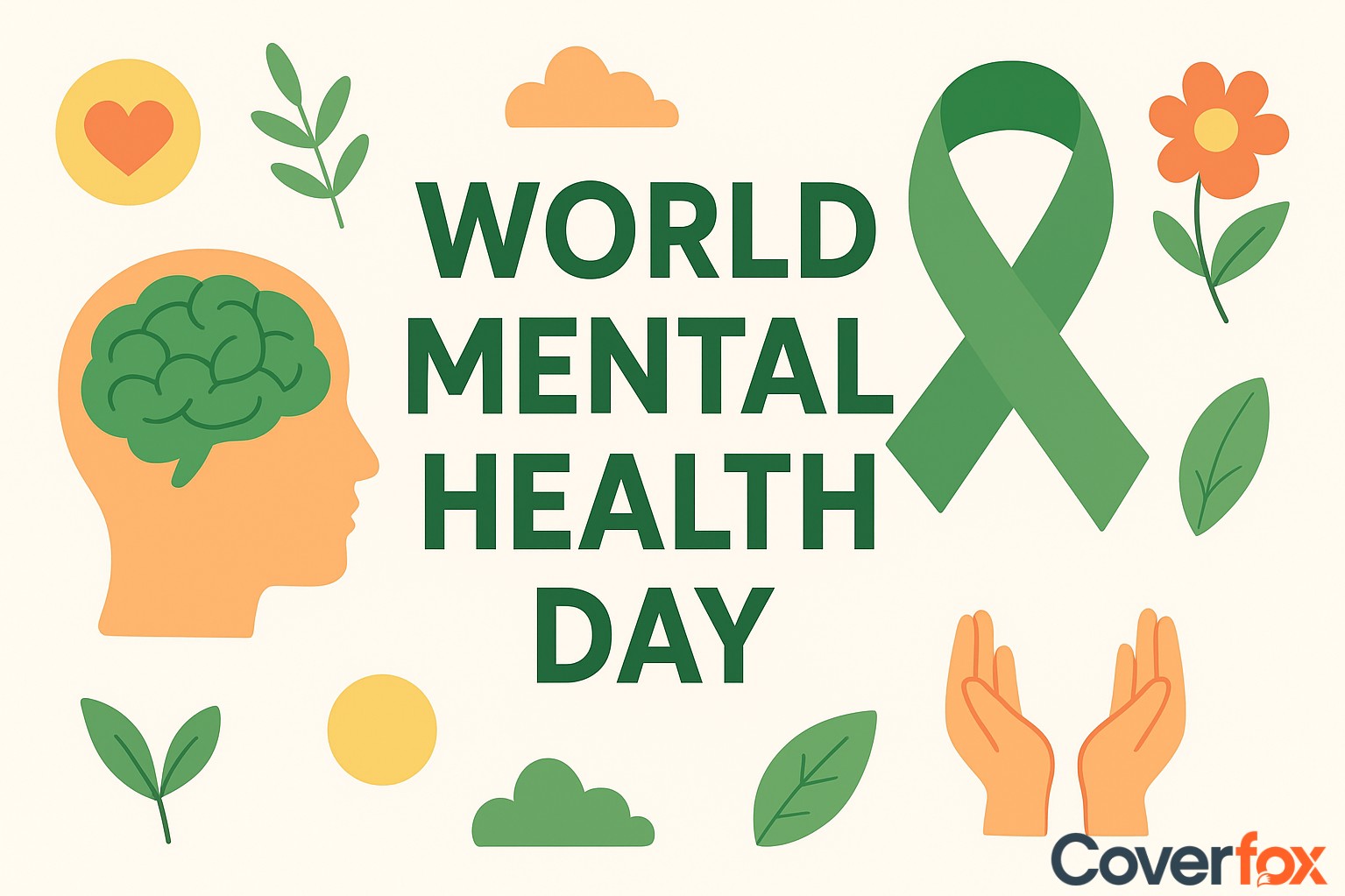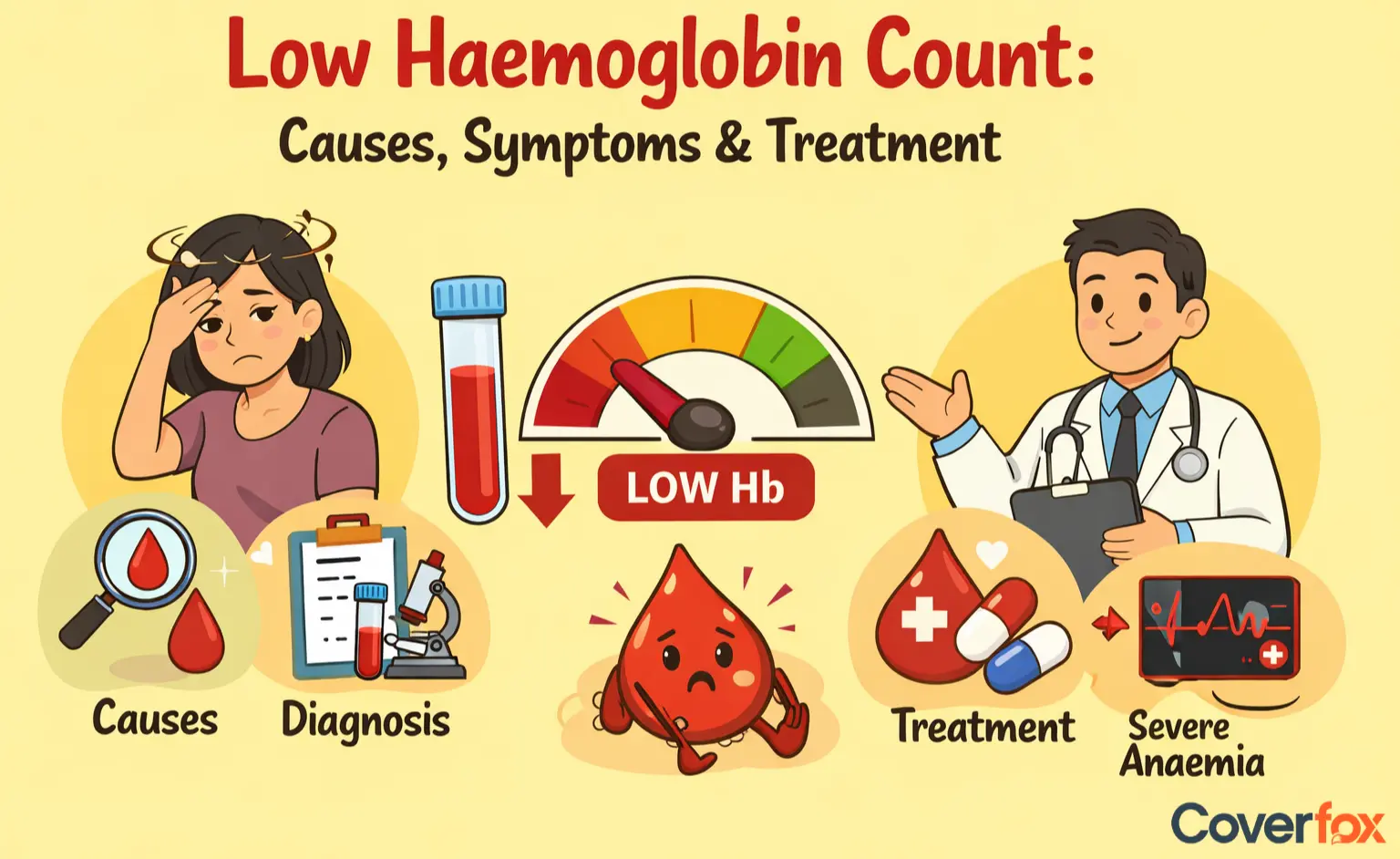World Mental Health Day 2025 will be observed on October 10, 2025, with the theme “Access to Services – Mental Health in Catastrophes and Emergencies.”

First introduced in 1992 by the World Federation for Mental Health, this global observance aims to raise awareness, promote education, and advocate against the social stigma surrounding mental health. The day underscores the importance of ensuring mental well-being as a vital part of overall health, influencing productivity, relationships, and community resilience. By encouraging open dialogue and improving access to support, World Mental Health Day reinforces that mental health care is not a privilege - but a universal right.
History of World Mental Health Day
World Mental Health Awareness Day was introduced to unite people across countries in recognising mental health as an essential component of overall health. Over the years, the day has evolved into a movement that shapes global conversations, inspires policy changes, and drives collective action towards better mental health support systems.
Historic Timeline of World Mental Health Day:
Initiation (1992)
First Observance of Mental Health Day
Introduction of Themes (1994)
WHO Partnership (1994)
Annual Focus
Global Impact
Established by the World Federation for Mental Health (WFMH) to promote awareness and understanding of mental health issues worldwide.
The inaugural World Mental Health Day was celebrated on 10 October 1992, without a specific theme.
The first official theme, “Improving the Quality of Mental Health Services throughout the World,” was introduced to focus global attention on service improvement.
The World Health Organisation (WHO) became a co-sponsor, enhancing the day’s international reach and strengthening advocacy efforts.
Each year, the day adopts a new theme that addresses a critical mental health topic—ranging from depression and suicide prevention to workplace stress and access to mental health care.
Over time, it has grown into a worldwide campaign, mobilising governments, NGOs, communities, and individuals to prioritise mental health and promote inclusive, supportive environments.
Theme of World Mental Health Day 2025
Each year, World Mental Health Day adopts a specific theme to direct global attention towards a critical aspect of mental health. These annual themes play a vital role in shaping public dialogue, influencing policy, and inspiring initiatives that address mental health challenges at both community and global levels. The theme for 2025, “Access to Services – Mental Health in Catastrophes and Emergencies,” emphasises the urgent need to ensure mental health support during crises such as natural disasters, conflicts, and pandemics. It highlights that psychological care is as essential as physical health services in times of distress.
Previous Years’ Themes of World Mental Health Day:
- 2024: Mental Health is a Universal Human Right
- 2023: Mental Health in an Unequal World
- 2022: Make Mental Health and Well-being for All a Global Priority
- 2021: Mental Health in an Unequal World
Key Messages of World Mental Health Day 2025
World Mental Health Day is not just an observance; it is a global platform to communicate vital messages about mental health, challenge stigma, and encourage action at all levels of society. The key messages and objectives of World Mental Health Day 2025 include:
Mental Health Matters
Access to Services
Combat Stigma
Promote Awareness
Education & Advocacy
Policy & Investment
Global Solidarity
Mental well-being is essential for a fulfilling and productive life.
Everyone should have access to mental health support, especially during crises and emergencies.
Reducing discrimination and societal stigma encourages more people to seek help.
Understanding mental health issues improves early detection, treatment, and support.
Knowledge and informed dialogue empower communities to take action.
Governments and organisations should prioritise mental health in planning, funding, and infrastructure.
Mental health challenges affect everyone; collective action strengthens resilience and recovery.
Global Mental Health Statistics 2025
These Mental Health stats should make an urgency to treat mental health across the world:
- Approximately 1.1 billion people worldwide are living with a mental disorder, representing nearly 1 in 7 individuals.
- Among these, anxiety disorders affected 359 million people, including 72 million children and adolescents.
- Mental disorders are the leading cause of disability globally, accounting for 1 in 6 years lived with disability.
- Approximately 800,000 people die due to self-harm each year, equating to one death every 40 seconds.
- 71% of people with psychosis do not receive mental health services.
- 1.4% or less of health budgets in LMICs (Low and Middle Income Countries), on average, go to mental health.
- 12 billion productive work days are lost every year to depression and anxiety, for US$1 trillion.
(Sources - WHO and World Mental Health Today)
Latest Advances in Mental Health Research & Care (2025)
Innovation and technology are revolutionising mental health care in 2025, making support more accessible, personalised, and scalable. Advancements such as mobile applications for self-assessment and mindfulness, teletherapy platforms, AI-driven diagnostic tools, community-based care models, and workplace mental health programs are transforming the landscape of mental health services.
Latest Advances in Mental Health Research & Care (2025):
Mobile Apps for Self-Assessment and Mindfulness
Teletherapy and Remote Consultations
AI-Based Diagnostic Tools and Mental Health Chatbots
Community-Based Care and Peer Support Systems
Workplace Mental Health Programs
Applications like Wysa and Youper provide 24/7 emotional support through cognitive behavioural techniques, helping users manage symptoms of anxiety and depression.
Platforms such as Lyra Health provide AI-powered mental health care, integrating advanced technology with clinical excellence to support HR leaders, members, and care providers.
AI-driven solutions, including chatbots and virtual therapists, offer 24/7 support, enabling users to receive immediate, judgment-free guidance on issues ranging from stress to depression.
AIIMS Delhi launched "Never Alone," an AI-powered mental health and wellness program providing round-the-clock screening, counselling, intervention, and follow-up care via a secure, WhatsApp-accessible app.
Companies are increasingly implementing mental health initiatives to promote emotional well-being among employees, recognising the importance of mental health in the workplace.
Summary
World Mental Health Day 2025 highlights the importance of mental well-being, combating stigma, and improving access to care, especially during crises. Innovations like teletherapy, AI tools, and community support are transforming mental health services, while insurance helps make care more accessible. Prioritising mental health through awareness and self-care strengthens individuals, workplaces, and communities alike.
Also Read About:
Frequently Asked Questions
Why is 10th October Mental Health Day?
World Mental Health Day is observed on 10 October each year to raise global awareness about mental health issues, reduce stigma, and promote access to care.
What day is World Mental Health Awareness Day?
It is observed annually on 10 October, the same as World Mental Health Day.
What is the theme for World Mental Health Day 2025?
The theme for 2025 is “Access to Services – Mental Health in Catastrophes and Emergencies.”
What is the colour for Mental Health Day?
Green is commonly used as the symbolic colour for mental health awareness.
How can I participate in World Mental Health Day 2025?
You can participate by spreading awareness, joining community events, attending webinars, practising self-care, supporting mental health initiatives, or sharing informative content online.
Who started World Mental Health Day?
World Mental Health Day was initiated in 1992 by the World Federation for Mental Health (WFMH).





